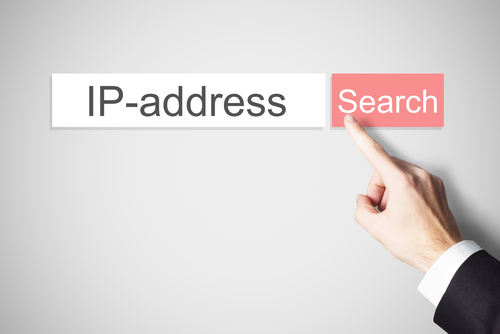The IP (Internet Protocol) address of your website is the unique identifier of its server – the one where your hosting provider has placed it on. It is a numerical label assigned to your server so it can be used for networking, communication and unique identification.
If you are using shared web hosting, it means you will also be sharing almost all your server’s resources with your fellow website owners – including the IP address.
Now, in an ideal world, there would be nothing wrong with sharing resources as everything would run smoothly and the resources would be allocated appropriately; but unfortunately we do not live in one. Things do go wrong and issues arise, and more so, on a server that is shared with hundreds of other website owners.
One way of addressing these issues is by opting for a dedicated IP address. It should be noted that the whole concept of owning your own IP address is one that is highly – and equally – argued by supporters of dedicated IP addresses and critics who deem it an unnecessary enterprise. Of course, as you’re well aware by now, we are supporters of the idea.
Below, we will see the ways your Small-to-Midsize business (SMB) can benefit by getting a dedicated IP address:
- SEO Booster: the strongest argument that is fielded by critics of opting for a dedicated IP address state that it has no effect in boosting a website’s SEO rankings. They claim that search engines do not take the IP address status (private or shared) into consideration when they decide such rankings.
Ok, that might be true when considering the cause and effect directly. But what if your site is hosted on a server that has been blocked for one reason or another (a few of which we will also see) and your uptime – or rather your site’s availability to be more precise – is affected by the blockage? This will affect your site’s ranking. You will lose traffic, which will also contribute to losing your ranking.
- Reputation Control: one of the biggest drawbacks of having your site hosted on a shared hosting server is that you share, and are all identified, by a single IP address. Now, if for some reason – intentionally for profit, or unknowingly as an oversight – your hosting provider decides to allow the hosting of sites of “ill-repute” (you know, sites that cater to porn, phishing, hacking / cracking tools and ware, or spam), you will soon find that your reputation too is tarnished as soon as it is found that your IP address is the same as theirs.
And if you come to think of it, who would want to do business with a website or business that shares an address with such sites? What if you dealt in children’s goods – do you think parents would feel comfortable dealing with your site?
- Defense against Blocking: the common way of dealing with sites that have been found to harbor malware (that could be used to phish for or hack visitors’ data) is to blacklist them and then block their IP addresses. Search engines drop them from their search results pages while antivirus and browser makers block and warn internet users that the site they are trying to access is not safe and that they should proceed at their own risk – most visitors do a u-turn.
Now, if your website shares the same IP address as these sites, you too will find yourself on that blacklist. The effects of this move can be very difficult to reverse or recover from. You will have to start from scratch to win back the trust of search engines. You will even have a tougher job of convincing your customers to come back.
- Cut Diminishing Performances and Speeds: this doesn’t apply to all hosting providers, but, when some of them do share resources among their clients, they don’t always do a great job at proportionally allocating them. This means, if your neighboring website is a busy one that enjoys lots of traffic, there are chances that it will suck up more than its share of the resources. That problem can be addressed by getting your own dedicated server and the IP address that comes with it.
- SSL Requirements: if you own an online trading or ecommerce website, which means you need to make sure all your transactions are secure, you will need to invest in an SSL (Secure Socket Layer) certificate. This technology encrypts the data coming from and going to your website and it is a must if you want to ensure the online safety of your clients.
But, in order to get your certificate you need to have a dedicated IP address – it is a requirement.
- Accessing Your Site: sometimes you will need to access your website other than by using its URL. A good example would be when you need to use FTP to upload / download data to / from your website. Another e scenario would when there is a lag or even failure of domain name propagation. In both cases, you simply use your IP address and you will find your site.
An extension to this point could also be when you want to access, and directly work on, your site using remote access tools like pcAnywhere or Remote Administrator – both of which need a dedicated IP addresses.




















